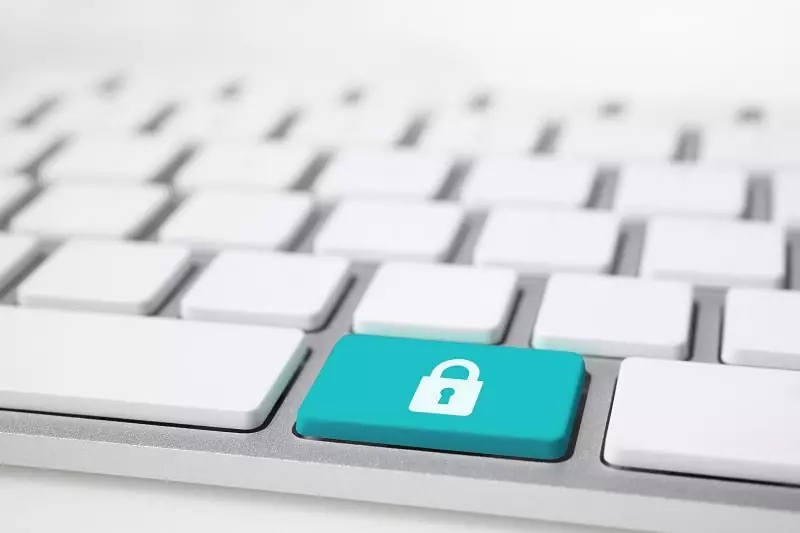How to Freeze Your Credit
Table of Contents
- What is a Credit Freeze?
- How is a Credit Freeze Different from a Credit Lock?
- How to Start a Credit Freeze
- Will a Credit Freeze Affect My Current Accounts?
- Can My Credit Report Be Accessed Through a Freeze?
- How to “Thaw” Your Credit
- When it’s a Good Idea to Invoke a Credit Freeze
- Can Someone Start a Credit Freeze on My Behalf?
- Credit Freezes for Minors
- How to Start a Credit Fraud Alert
- By David Lukic
- Published: Sep 17, 2020
- Last Updated: Mar 18, 2022
With data breaches, ransomware, and identity theft on the rise, consumers must put in an extra effort to keep their credit safe these days. One of the ways some people lock down their information is through a credit freeze. It can be a good thing in some cases but not necessarily in all.
What is a Credit Freeze?

A credit freeze is a tool that allows you to "lock" your credit report so that no one can open up new lines of credit, get a loan or sign up for services using your identity. When you put a credit freeze on your account, new creditors cannot view or access your credit report from the three big credit agencies (Experian, TransUnion and Equifax). Existing creditors can still see your credit report, however.
Typically, when you apply for a credit card, mortgage, or loan, the banks contact one of these agencies to view your credit report to gauge your creditworthiness. When you apply a credit freeze, they cannot do this. So, you can’t get new lines of credit either unless you remove the credit freeze. You can do so at any time.
How is a Credit Freeze Different from a Credit Lock?
A credit freeze is backed by US law, but a credit lock only exists between you and each bureau. So, if you are the victim of fraud while a lock is active, the bureau isn’t liable for the damages.
Freezes are 100 percent free, while credit bureaus charge a flat or monthly subscription for their locks. They justify the price due to the convenient toggle that deactivates the lock and the lack of a PIN to remember. However, some would see the missing PIN security feature as a downside.
While the credit lock toggle is sometimes useful, credit freezes don’t take much longer to undo and typically “thaw” within an hour of requesting it via phone.
How to Start a Credit Freeze
Initiating a credit freeze is pretty straightforward. However, you need to contact each credit bureau separately and inform them. They used to charge a fee, but now the law requires that they provide this service to you for free.
You can contact the credit reporting agencies below:
- Equifax: 1-800-349-9660 or equifax.com
- Experian: 1-888-397-3742 or experian.com
- TransUnion: 1-800-680-7289 or transunion.com
When you call, be sure you have the following information readily available as they will need it.
- Full legal name.
- Date of birth.
- Full address.
- Social security number.
- Other personally identifiable information.
The credit freeze will stay on your account until you remove it. Each credit bureau will provide you with a PIN that you will need to lift the freeze by phone or mail. There are other ways to verify your identity if you forget your PIN, but they are time-consuming and may delay your future plans.
Many password managers let you store PINs much like passwords. These services are fully encrypted and let you access the information when you need it most. Less secure options for storing your credit freeze PINs are your phone’s notes, a desktop document, or an external hard drive.
If you will be renting an apartment, buying a home, or requiring a few people to review your credit, you can “lift” the credit freeze which temporarily suspends it. Then you can put it back after. If you choose to “remove” it, it will be gone entirely from your account.
You should still get a copy of your credit report twice a year, even if your credit is frozen. The first two reports are free from any bureau and are the only way to ensure your credit standing is correct.
A freeze keeps criminals from opening new accounts in your name, but your existing lenders can make mistakes that damage your standing. One of your payments may get marked late, or an interest payment could be miscalculated.

Will a Credit Freeze Affect My Current Accounts?
Credit freezes only stop new inquiries of your credit report. Your existing accounts, including credit cards and loans, will continue as usual.
Your current accounts staying active also means that you’re still susceptible to credit card theft. A credit freeze isn’t a magic lock that protects you from all fraud. You must continue to keep an eye on your financial statements for any other signs of identity theft.
Can My Credit Report Be Accessed Through a Freeze?
A few cases exist when third parties can check your credit report despite an active freeze. This is sometimes decided in courts on a case-by-case basis, but frequently used situations include:
- Insurance companies assessing risk (Underwriting)
- Reviewing or modifying existing credit accounts
- Checks from one of the three credit bureaus
- Law enforcement investigations
How to “Thaw” Your Credit
Someone must check your credit report when you are applying for a home loan, credit card, or even a smartphone payment plan. They can’t do that if you have a credit freeze active.
You can thaw your credit by phone anytime if you have your PIN for each bureau. Once again, you’ll have to contact all three bureaus separately, but you can use the same numbers we listed earlier in this post.
You can also set up a temporary thaw. This option is excellent for individuals who aren’t sure their identity is safe but have a pressing need for their credit report. Call, specify a date range, and ensure your prospective creditor checks within those days.
When it’s a Good Idea to Invoke a Credit Freeze
If you are the victim of a data breach and identity theft, then a credit freeze makes sense. There are no prerequisites to freezing your credit. You don’t need to wait for disaster to strike, so it may be best to initiate a freeze if you even suspect foul play. For some people, however, it is overkill.
If you are worried about thieves opening new credit accounts in your name, then you should consider a credit freeze.
A credit freeze is free and doesn’t negatively affect your credit score. Therefore, there is no adverse effect from putting a credit freeze on your account except that it may force you to fill out paperwork a few times and may slow things down when you need to use your credit. It may also be a pain to keep track of PINs and lift and restore your credit freeze if you need it.
It may also keep your personal information out of any marketers’ hands. This helps reduce the number of “pre-qualifying” offers you get through the mail.
Although they work behind the scenes, all three credit bureaus are aggressively for-profit companies. Some of their money comes from credit report requests, but most profit comes from selling information like names and estimated income to marketing companies. Credit freezes prevent bureaus from selling your data.
Remember, though, a credit freeze does not prevent hackers from accessing your existing accounts, and if your information was stolen in a data breach, that is a real possibility.

Can Someone Start a Credit Freeze on My Behalf?
A proxy may initiate a credit freeze for an incapacitated adult. This is usually reserved for adults in extreme medical circumstances such as comas. The representative requires a signed Power of Attorney or a court order, so permission needs to be granted beforehand.
If you can prove your authority, you can initiate a credit freeze for another person the same way as yourself. Call all three credit bureaus, request a freeze, and create a PIN.
Credit Freezes for Minors
Children are a treasure chest for identity fraudsters. Although they only qualify for basic credit offerings, criminals can use their information for years since most children don’t check their credit until their late teens.
Most minors don’t have a credit history to check. However, children with stolen identities may have a credit file due to criminals opening accounts in the child’s name. In these cases, a freeze is highly recommended.
The process is lengthier than starting one for yourself due to the abundant “proof of authority” required. You’ll need to show that you can make decisions for the minor by presenting any of the following:
- A court order
- Document showing Power of Attorney
- Proof of parenthood over the minor
The adult must also send copies of their IDs, including a social security card, birth certificate, or driver’s license.
Due to the necessary documentation, credit freezes for minors cannot happen over the phone. The only option is by mail, meaning the process takes a few weeks to months to complete.
During this period, you should frequently check the minor’s credit report for any signs of fraud. It may be an excellent time to teach them how to monitor it for themselves.
How to Start a Credit Fraud Alert
A gentler, less intrusive option is to contact one of the major credit bureaus and ask to add a fraud alert to your account. A fraud alert indicates that you have been a victim of fraud or identity theft, and therefore anyone who considers lending you money (or someone pretending to be you), has to take extra steps to verify that it’s really you before providing the credit.
It’s easier to add a fraud alert (you only have to tell one agency, and they have to tell the other two). You can do it by phone or mail easily, and it lasts for a year.
In special circumstances, you can add a seven-year fraud alert if you have filed a complaint with the FTC and the police due to identity theft. Neither a credit freeze or fraud alert negatively affects your credit, and both can give you peace of mind.
Another excellent option is to sign up for credit monitoring so that you are sent alerts whenever anything changes with your credit report. IDStrong.com offers this service and more.
If you have a credit freeze and are considering adding a credit monitoring service, you will have to lift the freeze before proceeding. Once you add the monitoring service, they’ll have continued access to your credit activity, and you can reinitiate the freeze.
In the end, it is up to you. A fraud alert provides an extra layer of security and ensures that no one opens up new credit without proper identity verification. A credit freeze is a more severe step and may cause you more work and hassle in the long run.
















